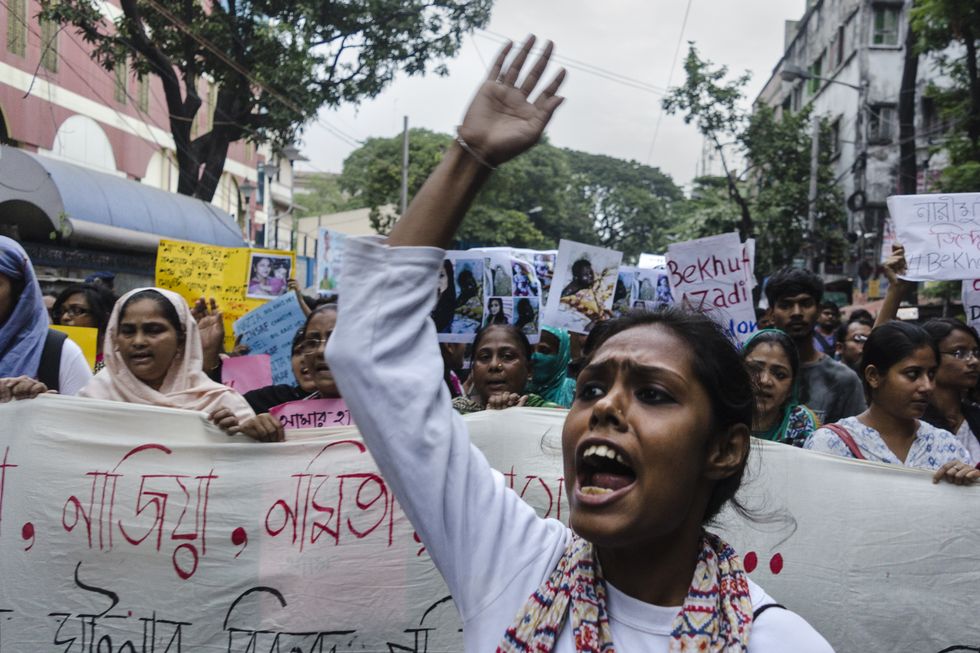Victim blaming is when someone looks to the victim of a crime for answers rather than the perpetrator.
Whether it's as direct as saying women who dress a certain way can only expect to be raped, or is insipid as simply asking what a victim was wearing when she was raped, the result is the same.
Even what could be thought of as well meaning comments often have the unintentional effect of putting the onus on the victim.
For example, discussing female-only train carriages, or even nail polish that changes colour when your drink has been spiked, have been criticised for their overemphasis on victim self-protection rather than prioritising attacker education.
Though there are sometimes grey areas (where is the line between being prepared and aware vs unfairly taking on the burden of other people's actions?), sometimes it is so black and white, you'd be a fool not to see it.
Take Varnika Kundu, for example. She was chased and almost kidnapped by two men while driving home in Chandigarh, India, after midnight on Saturday.
She explained in a Facebook post that two men, from 'influential families', tried to run her off the road in a particularly terrifying and aggressive manor. One of them got out the car twice and attempted to open the door to get to her, despite her swerving and driving away and honking the car in fear.
Thankfully, the police arrived fairly swiftly and Kundu is safe, but the message of her post was to say that she was lucky, that it could happen to anyone and that women should try and stay safe with whatever means possible.
The post subsequently went viral, with 16k responses, 6.5k shares and hundreds of comments.
'They seemed to really be enjoying harassing a lone girl in the middle of the night, judging by how often their car swerved, just enough to scare me that it might hit me,' Kundu told the Guardian.
She said she felt lucky she was 'not lying raped and murdered in a ditch somewhere'.
The ordeal was even discussed by the vice president of the Bharatiya Janata party (BJP), Rammer Bhatti who decided to claim that it was the time of night, not the two men harassing her, that actually put Kundu in danger.
He said: 'The girl should not have gone out at 12 in the night. Why was she driving so late in the night? The atmosphere is not right. We need to take care of ourselves.'
The Times of India quoted Bhatti as saying: 'Parents must take care of their children. They shouldn't allow them to roam at night. Children should come home on time, why stay out at night?'
Speaking to NDTV, Kundu and her father rejected criticism of her decision to be out late at night alone.
She told the news station:
I'm supposed to be wondering about what this is going to do to my image and my life. But what would those guys have done to my life if they had caught me? What I do and where I go and at what time I do it is my business.
Thankfully, the women of Twitter were on Kundu's side, and started the hashtag #AintNoCinderella in response, saying that they don't have a curfew of midnight or otherwise.
These women are kicking-ass one selfie at a time and we love it.
Daisy Murray is the Digital Fashion Editor at ELLE UK, spotlighting emerging designers, sustainable shopping, and celebrity style. Since joining in 2016 as an editorial intern, Daisy has run the gamut of fashion journalism - interviewing Molly Goddard backstage at London Fashion Week, investigating the power of androgynous dressing and celebrating the joys of vintage shopping.














